All three government high schools improving
(CNS): The three government high schools have all shown a marked improvement during the latest cycle of inspections by the Office of Education Standards. Following the news that John Gray was rated ‘good’ overall in its April 2021 review, the Layman E. Scott Sr High School on Cayman Brac has also achieved a ‘good’ ranking, not just overall but in every category in its report, improving on its ‘satisfactory’ rating in 2018. Meanwhile, although it still has some work to do, Clifton Hunter improved from its 2018 rating of ‘weak’ to ‘satisfactory’, with several areas judged to be ‘good’. However, students’ attainment remained ‘weak’ in maths and science.
Layman Scott has just 153 students aged between 11 and 17 and around 30% of them have special educational needs. Inspectors found that the students receive good quality support and guidance, which helped those with special needs to make progress.
“Relationships were positive and created an atmosphere where students could prosper and learn,” they stated in the report. “Leadership was effective and senior leaders were respected by the school community which accounted for the many improvements in the performance standards at this inspection.”
The report said the students made good progress in English, mathematics and science and in many of the other subjects. Teaching had also improved, with no ‘weak’ teaching observed on the inspection and most lessons judged as ‘good’. Thirteen performance standards had improved from ‘satisfactory’ to ‘good’ and another from ‘weak’ to ‘good’, the inspectors found.
Urging the school to continue the improvements made so far, the inspectors recommended that strategies be developed to challenge the highest achievers and support those struggling to learn. The inspectors added that the education ministry “should consider confirming the acting senior leadership posts to ensure stability”.
The acting positions includes the principal, Devon Bowen, and the deputy principal, Kevin Roberts. The inspectors said, “Although most of the senior leadership team were in acting positions, in the short time they had been in posts, they had provided clear and consistent direction for the school. This had provided the necessary drive for the improvements that had resulted in better student outcomes and more effective teaching.”
Meanwhile, at Clifton Hunter things were not as rosy but the school had made some improvements including student progress in English, mathematics and science. Almost all students demonstrated positive attitudes to learning, and attainment in English had also strengthened to ‘good’. The inspectors also noted an improvement in the behaviour of students as a result of higher expectations of them by the leadership. Behaviour and attitudes resulted in generally orderly classrooms and largely good conduct, and the number of exclusions and suspensions had been reduced, the report stated.
Given that there is still some way to go before the school can achieve a ‘good’ rating, the inspectors made a number of recommendations. They said CHHS needed to raise standards of achievement in all year groups, embed best practice in teaching and secure consistency across the school. Inspectors also called for appropriate support in all subjects for students with special educational needs. The school has 175 SEN students among a total of 785 aged eleven to 16.
Last Wednesday John Gray celebrated its ‘good’ rating at a special assembly chaired by student leaders Jelani Hanson and Keanna Kelly and opened by Year 8 student Jerrin Reynolds-Velasquez, which showcased the improved student progress mentioned in the OES inspection report. The event was attended by numerous dignitaries and government leaders, including the Governor Martyn Roper.
Congratulating the school, he said, “You are on the way to becoming a world-class institution.” Roper added that Deputy Governor Franz Manderson “often reminds me that there should be no silent victories. So we should shout about this from the rooftop as this is something to be celebrated.”
OES Director Nicholas Sheriff said the ‘good’ rating for JGHS and LSHS high schools was a significant achievement and “a well-earned judgement for all the hard work”. He explained that international inspectors from around the world came to inspect Cayman Islands schools and that a ‘good’ rating here is comparable to other ‘good’ ratings from around the world.
See inspection reports in the CNS Library or the OES website.
- Fascinated
- Happy
- Sad
- Angry
- Bored
- Afraid
Category: Education, Local News















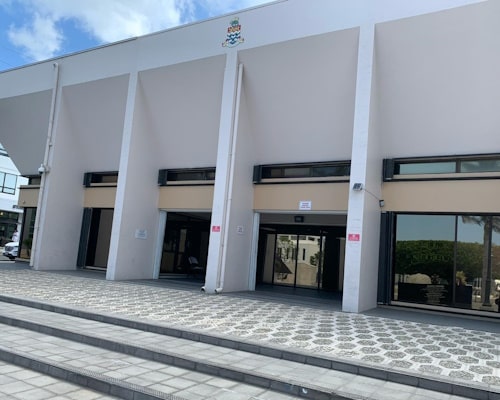



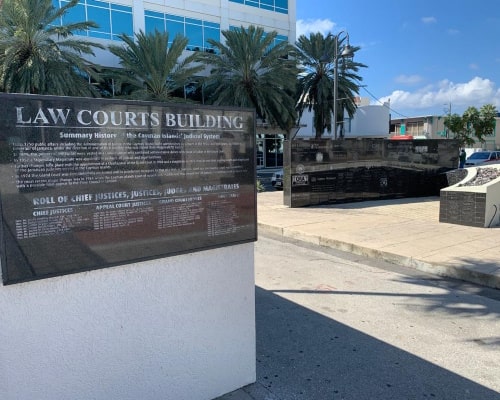
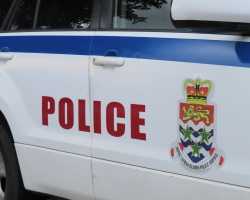



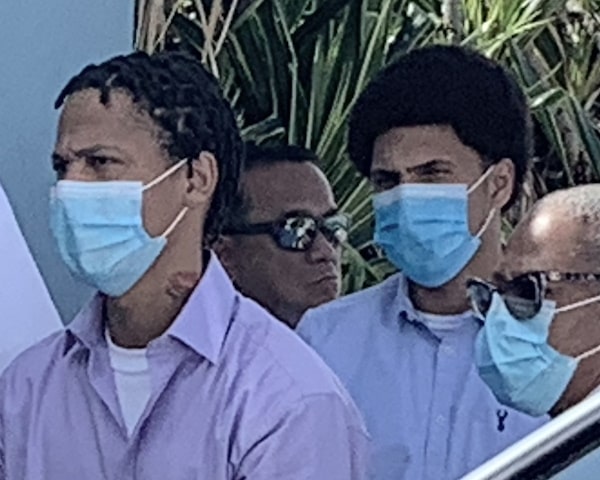



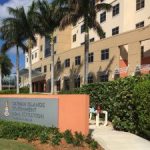








How many government ministers have or had their kids in public schools I wonder?
How many have had their vaccine ?
This is good news but the government needs to open public schools to expat children with fees to cover costs only. Diversification is very necessary.
30% + of government school children are expatriates! In some government schools (George Town Primary for example) there have been instances of most children being expatriates. The belief that only Caymanians attend government schools is false. The problem as to lack of diversity is that the overwhelming majority, like their teachers, are from the Caribbean. Diversity only works if there are some children from European, African, North American and Asian backgrounds, and different socio-economic strata. Ain’t going to happen so long as Cayman’s government schools insist on CXC’s instead of IGCSE’s (Prep and Catholic) or IB (CIS). No bank manager or international finance executive is ever going to aspire to their children attaining CXC’s over IGCSE’s, or an IB. Unless we change our syllabus dreams of reintegrating our schools will remain just that.
The poster did not say public schools were not attended by expatriate children. it is fairly widely known that expatriates working for govt. can place their kids in public schools. I don’t know that 30% is true across the board but it should be more like 50%.
It won’t matter what the percentage is if everyone is from the Caribbean at school, and from Asia and Europe at work.
Whatever. If you’d have attended a good school, you’d know that ‘good’ is just that, it’s good. ‘Satisfactory’ would be mediocre.
They’re celebrating because they can. It’s a school with some of the most deprived catchment areas, that has been condemned in the press for years with negative stories.
Why don’t you volunteer your time to help them bridge the gap to ‘excellent’?
All teachers would benefit greatly from emotional intelligence workshops. I am all for discipline and structure in schools, but the way some of them talk to students is not correct. Respect begets respect.
To me the most concerning fact is that 30% of kids on the Brac have special educational needs. That’s a quite abysmal statistic. Why is that the case? Who assessed them? When? How did it get to this stage? Look at the pressure that it puts on the schools and the teachers. Kids with additional needs require far more time spent on them in a one-to-one situation. Is this happening but to the detriment of the other kids?
Our education system is operating in a vacuum and has been for far too long. A massive shake up is needed now!
I’m guessing you’re not an educator.
There’s nothing wrong with SEN kids. Luckily, more are being recognized and taught accordingly.
Contrary to popular belief, not all need one-on-one support, and even if they did, who cares? Good teachers, even if they’re not SEN specialists, will teach to the needs of their class.
It’s highly likely that it was 30% a generation ago, but teaching by rote was still the answer in a less enlightened time.
It’s a huge percent. And no, they really don’t get what they need. Someone checks in with them no and again but on the whole, teachers don’t differentiate, “forget” they are dyslexic, whatever, and make no allowances. Very frustrating for kids.
And, no hands on subjects for lower achievers, or anyone for that matter.
Where’s a Mr. Eddie.?
It makes me cringe how much we are celebrating a rating of “good”, why are we cheering for mediocrity? I agree that the improvements are great and should be acknowledged, let’s not cheer until these schools rate as excellent in most areas. Seeing the banner at JGHS saying “we’re a good school” makes me so sad. Let’s aim high Cayman!
2:07 its the same rating as the majority of private schools.
I expect that within 2 years the government schools will surpass the private schools.
2:07 here. Believe me I would love, love, love for the public schools to surpass the private ones. I want all Caymanian kids to get a free stellar education, not just those than can afford it. I know the overall ranking of most private schools is “good” but when you actually delve into each report, many private schools have most areas rated excellent and some good, with almost none rated satisfactory whereas these public schools have mostly good, a couple of excellent ratings and still many satisfactory ratings.
Now let’s compare the exam results. CiG spend more per pupil than anywhere else on the planet bar Luxembourg and far more per pupil than the cost of a place at most the private schools! “Good” is the bare minimum!
What was it Yazz and The Plastic Population said again?
Terrific. Now can we please bring back UK/international exams so that employers actually recognize the achievements of the students? Regional (Caribbean) examinations are never going to be seen as equivalents in a sophisticated international financial services driven economy.
The intentional Caribbeanization is coming home to roost
Thank Roy Bodden and Oswel Rankine for that 11:52.
Government schools sit both GCSE/IGCSE exams out of the UK and CSEC/CXC exams which are Caribbean based. CSEC exams are recognized by UCAS in the UK as being equivalent to GCSE/IGCSE as well as countless high-ranking universities from all around the world that consistently enroll students from the Caribbean every year. Therefore it’s probably time for the so-called sophisticated financial services to educate themselves.
Go back to Trinidad, or Barbados or Jamaica or whatever failing state you hail from, and whose standards you extol. That financial services industry you want to teach a lesson to is paying for everything. Our children deserve the world’s best. Not regional mediocrity (and the teachers that limits us to).
FYI – the educational system in Barbados is regarded as being very strong.
https://www.theedadvocate.org/the-edvocates-list-of-the-20-best-education-systems-in-the-world/
Sitting at 19 on this list just in front of Canada.
Further if you think employers view GCSE exams as being worth anything you are sadly mistaken. Try getting a job related to your A-levels, let alone as a school-leaver with IGCSE/GCSE at 16.
Finland and Switzerland are models. Barbados is not.
And GCSE’s are at number 10. That is well ahead of Barbados and CXC’s (and Canada) according to your list.
Yeah 4:15, then why do the Barbados elite send nearly all their kids to boarding school in Canada when their kids hit Grade 9?
They sure do deserve the worlds best, because we can actually afford it. And therein lies the irony, the powers that be have truly never cared about educating our own.
And never will.
To be fair CIG does spend considerably more per pupil on education than almost every country. Whatever the problem is, it’s certainly not a lack of funding.
Often just keeping on crap teachers.
Primary PE anyone? It’s a sin.